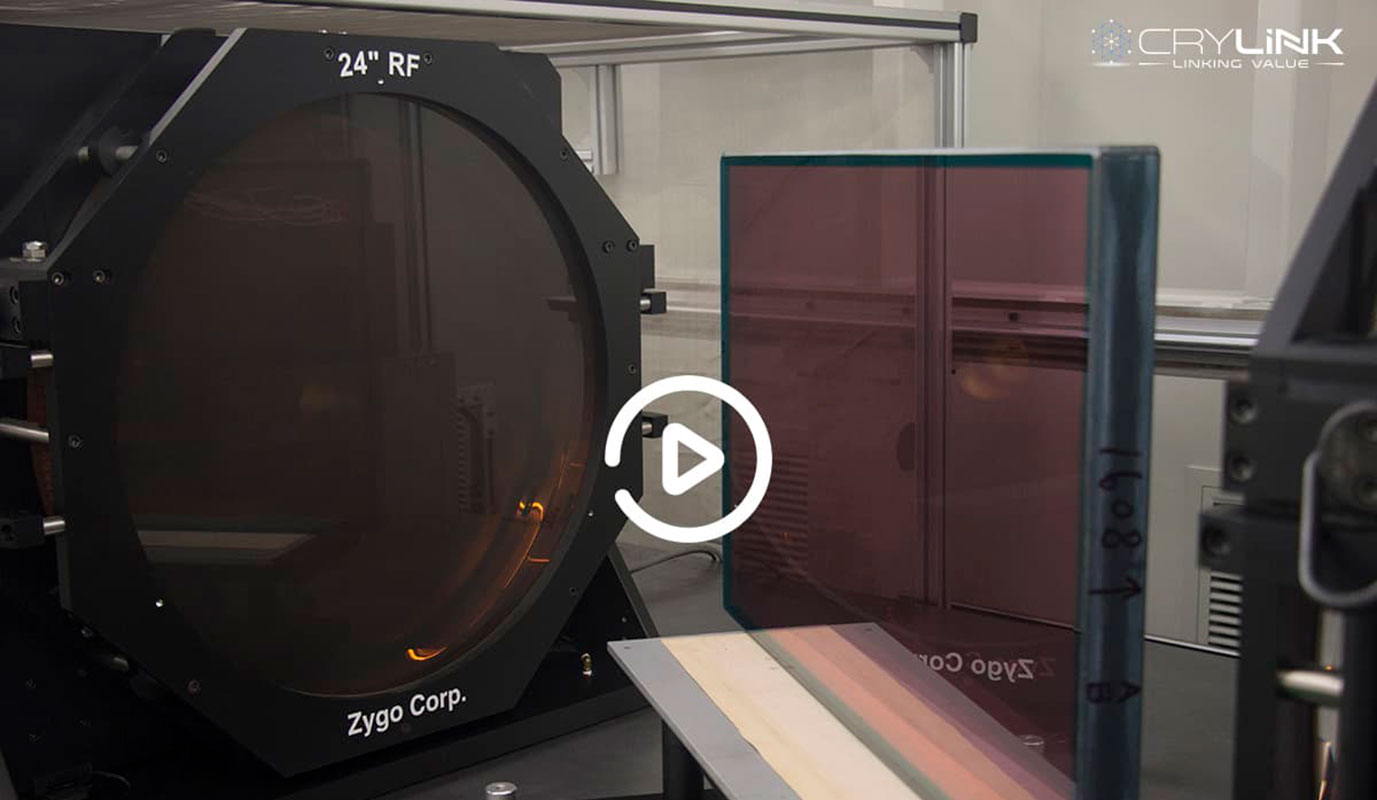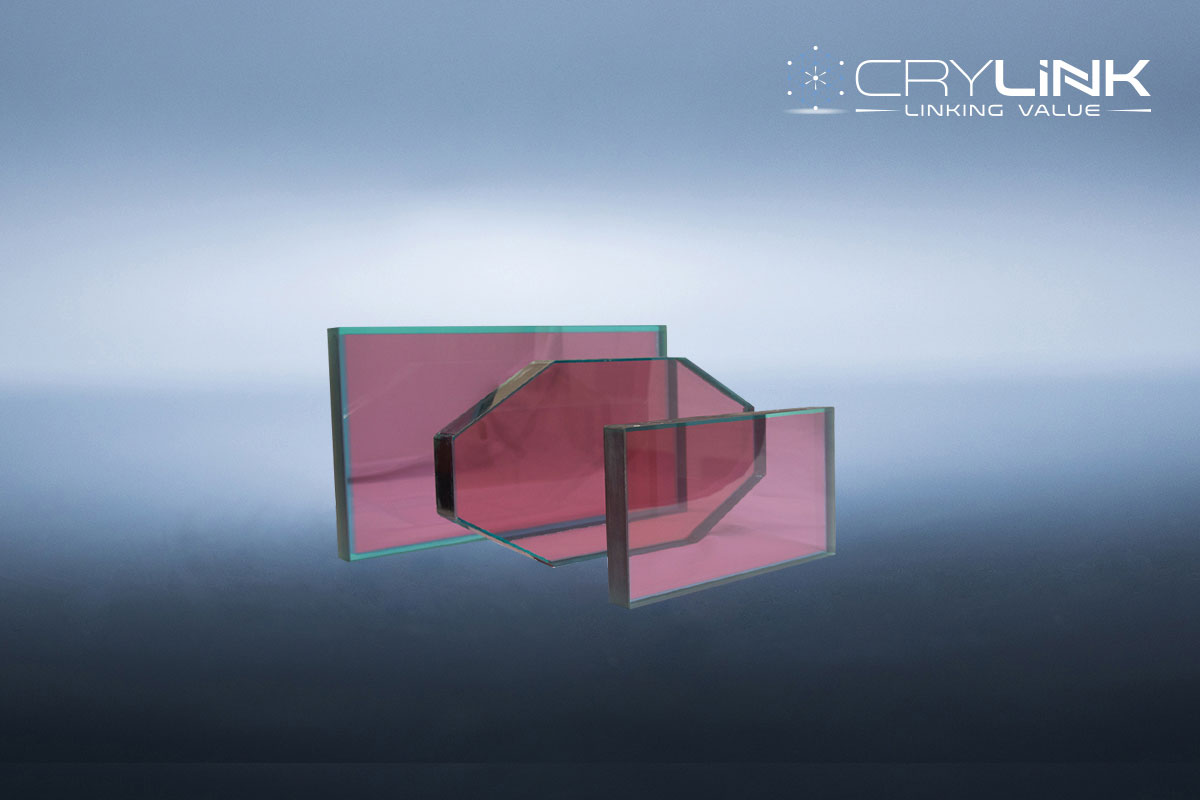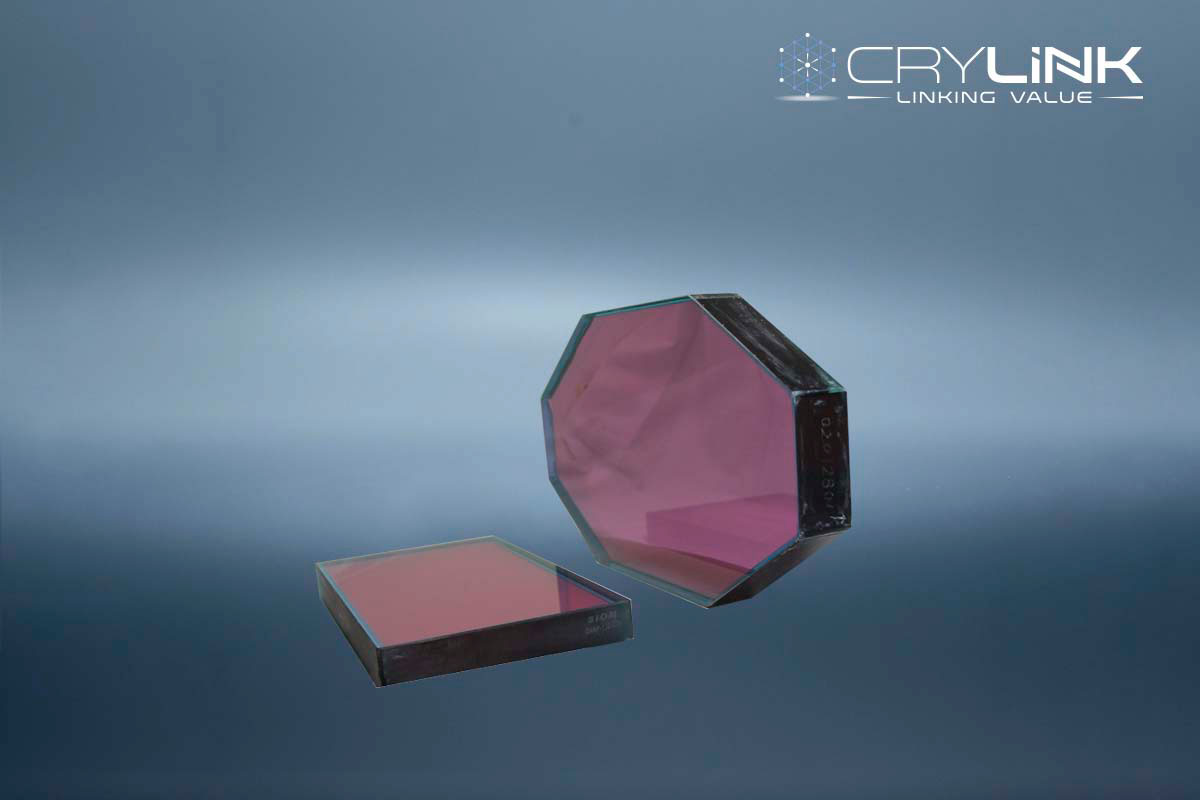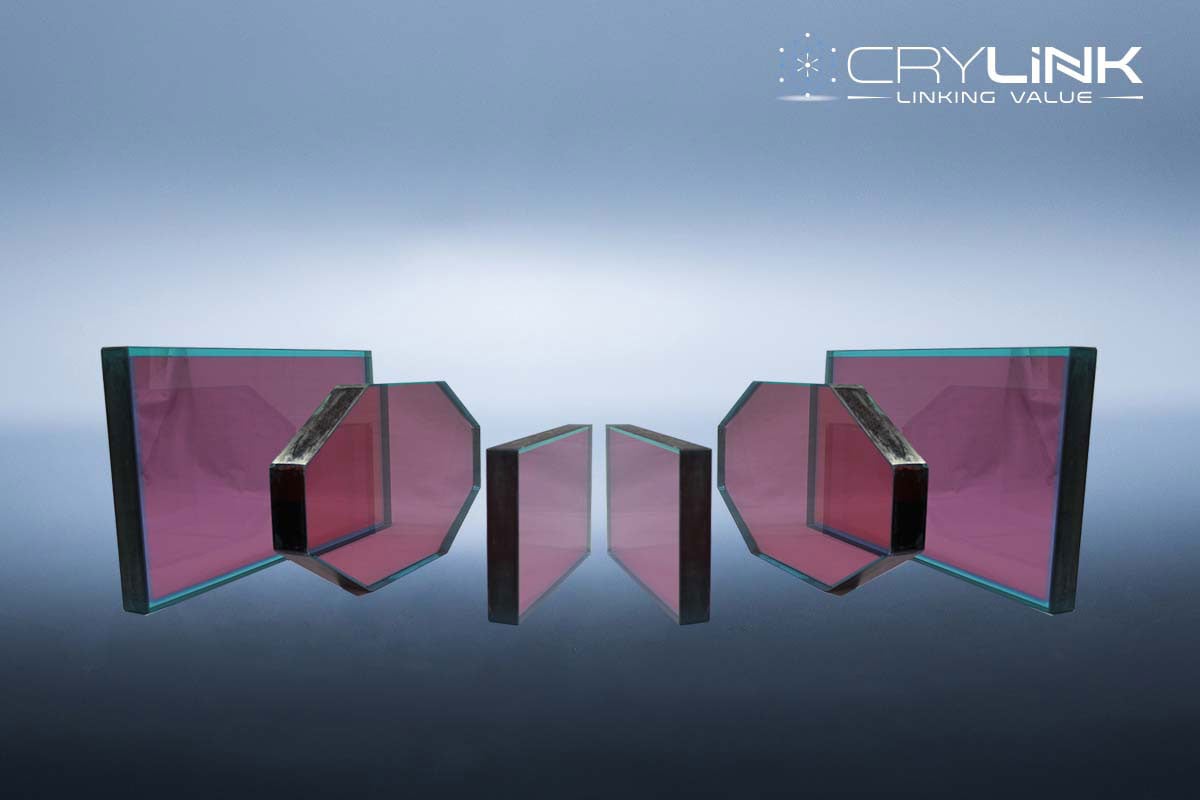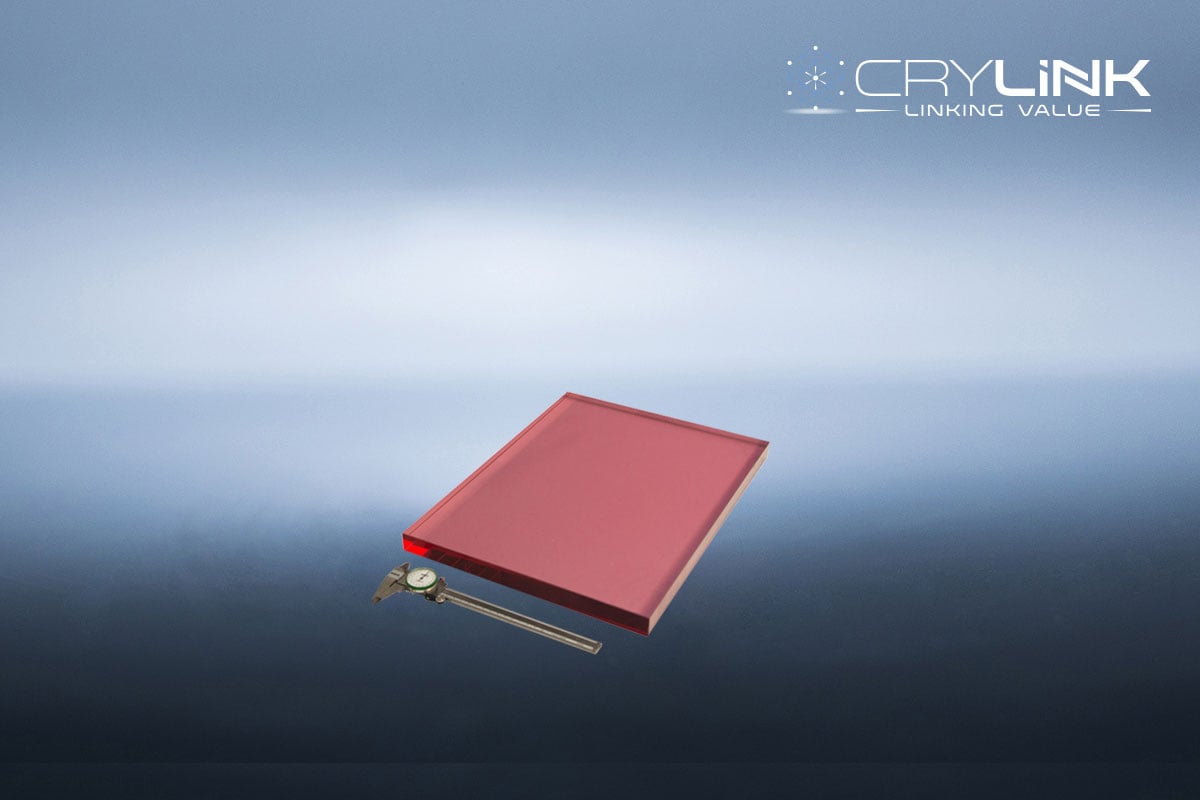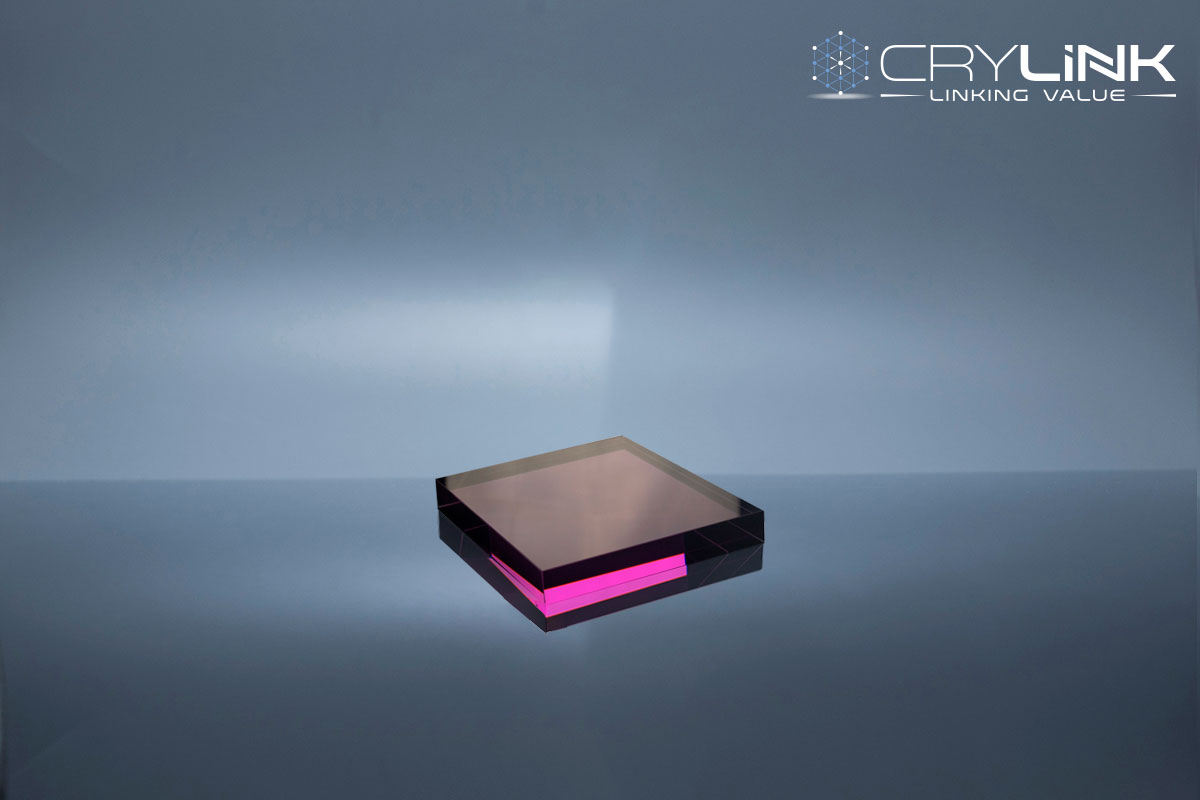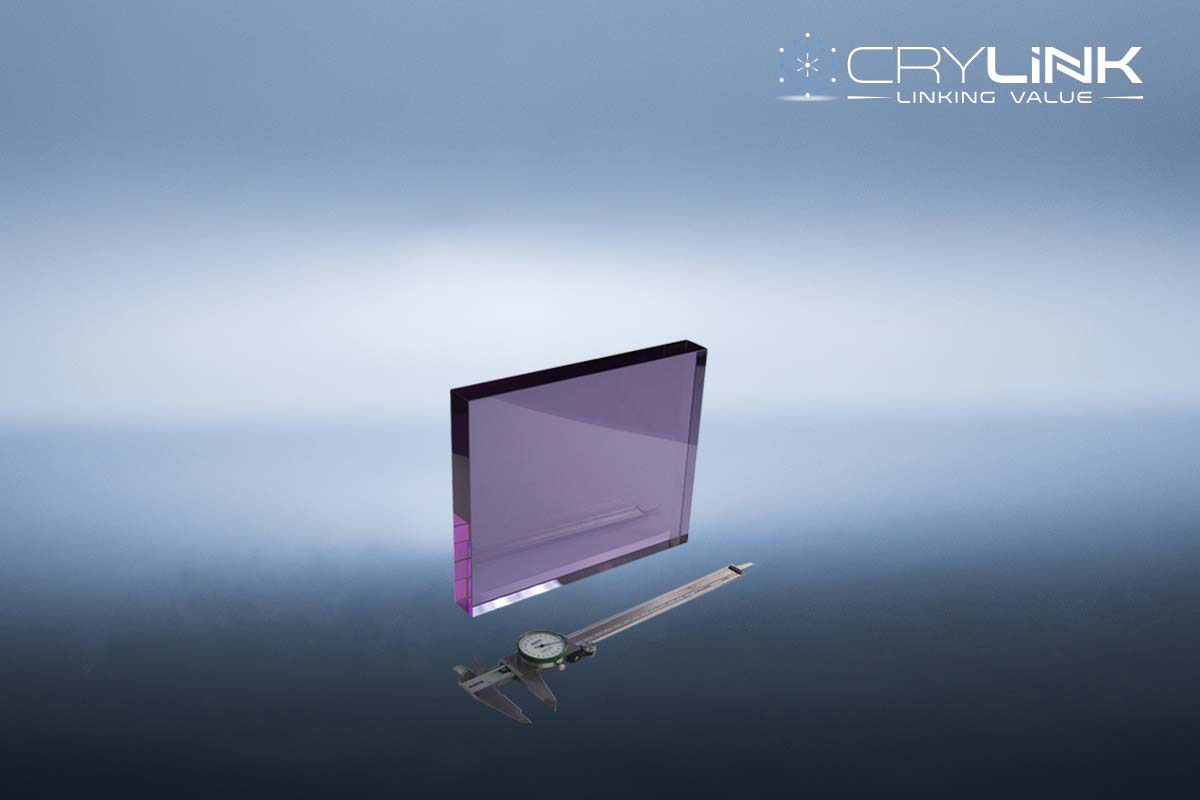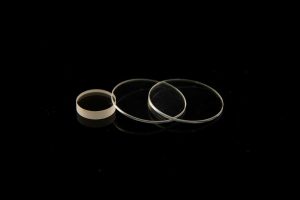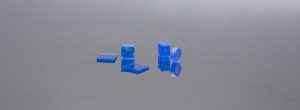Nd:Glass – Neodymium Doped, Phosphate, Silicate, Fluorophosphate, Laser Glass Rods. Nd doped phosphate glass Nd doped glasses have been widely used in high average power solid-state lasers.
Including continuous smelting, precision annealing, wrapping three process links. Continuous smelting is the core link of laser Neodymium glass batch Manufacturing It includes ingredients. Melting, hydroxyl removal, bubble removal and platinum removal, Homogenization, molding, tunnel kiln annealing and cutting. Fully blended high purity raw materials uninterrupted input into the melting zone. After melting at high temperature and flowing into the hydroxyl area, using continuous smelting dynamic hydroxyl removal technology, efficient elimination of hydroxyl groups in glass melt. Glass melt into the clarification area after hydroxyl group. According to the principle of reaction kinetic, elimination of bubbles and platinum particles in glass, the clarified glass melt flows into the homogenization area, mix well with fluid simulation design mixer to meet the requirements of 10-6 optical uniformity. The homogenization of the glass melt through the platinum tube into the molding area, accurate control of temperature field through the molding area, geometric dimensions of flow tubes and precise design of molds, realization of large size, high uniformity, stable molding. The molded glass enters a specially designed annealing area, slow cooling from 600 ℃ to room temperature. At the end of the annealing zone, cutting and growing about 1 meters of billet, parameter test qualified neodymium glass billet into precision annealing furnace. After a process of heating up, heat preservation and slow cooling, elimination of stress, qualified neodymium glass sheet with stress test, Into another core link of batch manufacturing-wrapping Edge.
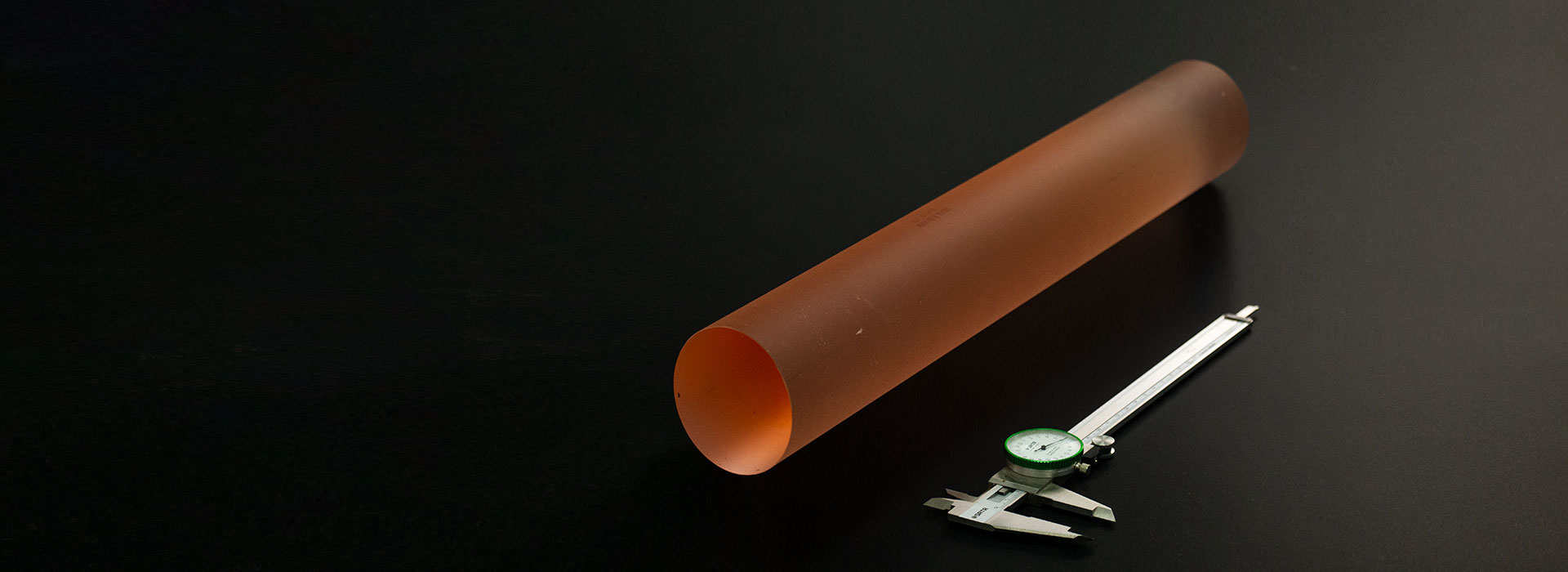
The use of self-developed wrapping glue, the neodymium glass will be processed, bonding with self-developed wrapping glass, This process is a wrapping edge. The final neodymium glass element is formed at the end of the wrapping edge. Design and development of wrapping glue, resistant to strong xenon lamp pump picosecond, strong laser, alternating thermal stress and other damage, and achieve a wide range of properties required for excellent neodymium glass wrapping edges. The motion model of edge compression fluid is established, simulation of edge Wrapping process. The optimization of the process parameters of the wrapping edge is realized to optimize the process parameters. Design, validation and construction of bulk packet edge systems realization of edge non-contact detection, mechanized wrapping edge, and package edge Full process quality control efficient production of bulk wrapping edges, stable and reliable product performance. Neodymium glass wrapping edge after optical processing perform wrapping surface detection, matching, and data transfer, After that, the neodymium glass enters the cladding pre-inspection Unit, through the Machine vision system, detection and screening of dimensions, angles, finishes and other indicators, mechanized wrapping of tested neodymium glass and wrapping glass. In the wrapping process, the central control subunit, based on stored packet-side surface data and pre-detected data, Real-time processing of cladding adhesive layer information collected by sub-unit of detection and feedback and send instructions to the pressure control and sensor sub-unit, control of thickness and uniformity of rubber, layer Realization of wrapping edges without additional stress.
Video from SIOM(http://kepu.siom.ac.cn/video/201707/t20170727_378956.html)
Translated by Crylink

